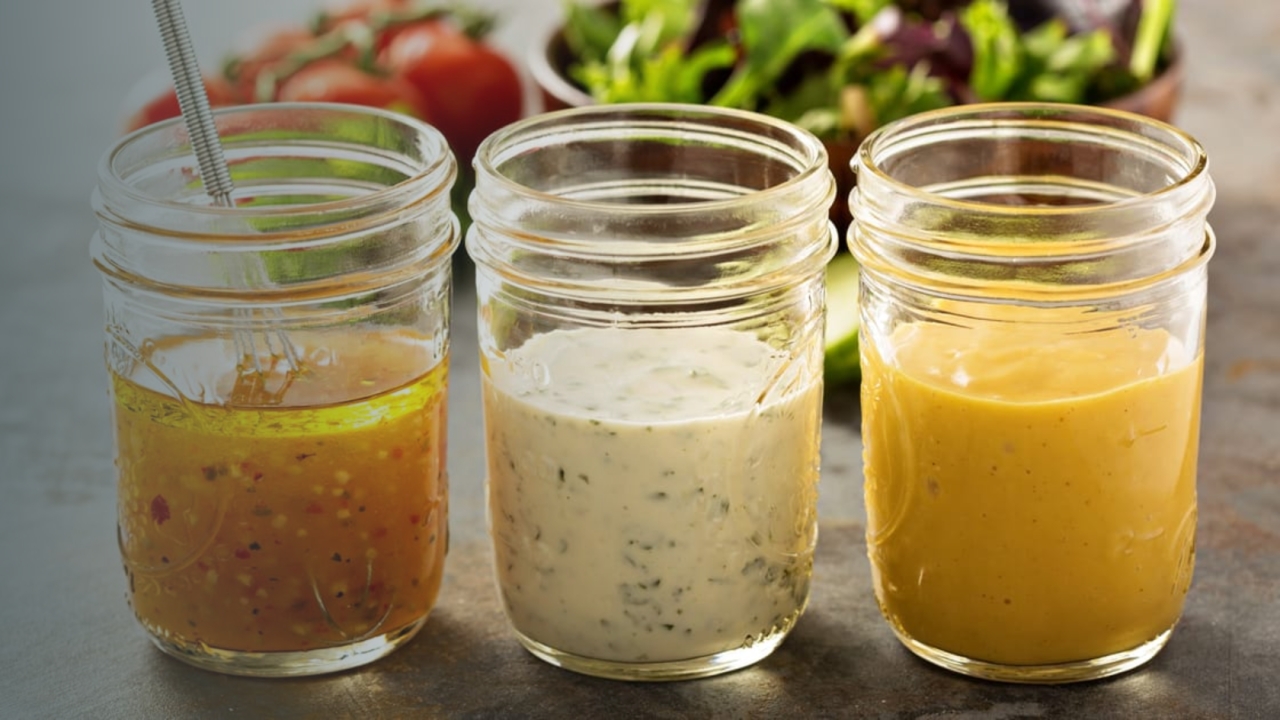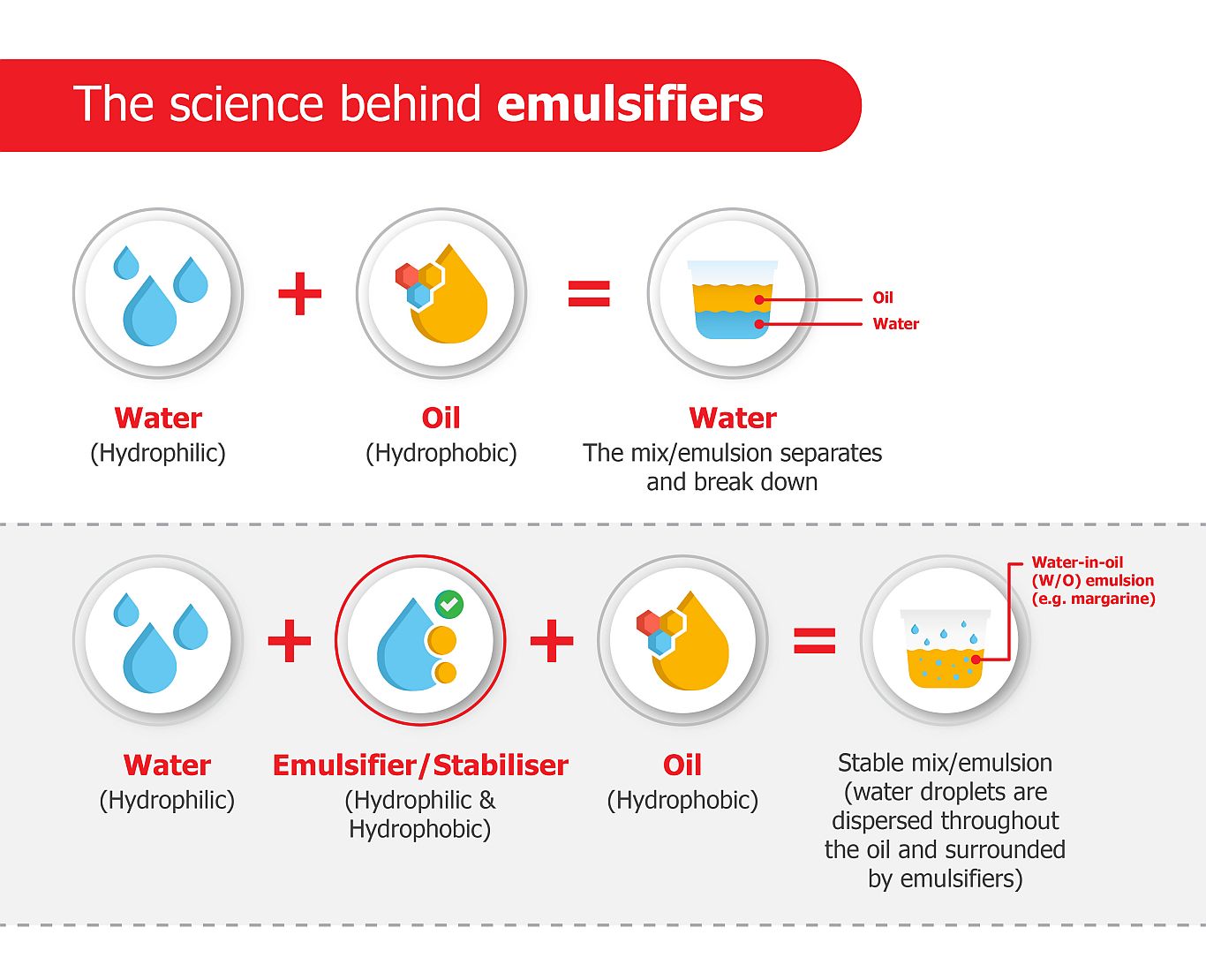The Scientific research Behind Emulsifiers and Their Importance in Modern Production
Emulsifiers play an essential duty in modern-day production, working as the unrecognized heroes that blend oil and water for a broad range of items. You could not recognize how these substances improve texture and security, but their impact is significant throughout markets. As consumer choices change in the direction of cleaner tags, the need for ingenious emulsifiers is growing. What does this mean for the future of item formulation? Allow's check out even more.
What Are Emulsifiers?
Emulsifiers are necessary representatives in the world of food and item manufacturing, functioning as the glue that binds 2 otherwise immiscible liquids, like oil and water. You might not realize it, but these substances play an essential function in developing steady mixes. They lower the surface tension between these liquids, permitting them to blend effortlessly. Common examples include lecithin located in egg yolks and soybeans, and mono- and diglycerides used in numerous refined foods.

When you whip up a salad dressing or indulge in a luscious treat, emulsifiers aid keep that best appearance. Without emulsifiers, several foods would certainly divide, leading to unfavorable textures and flavors.
The Chemistry of Emulsification
When you blend oil and water, you might discover they do not mix conveniently; that's where the chemistry of emulsification comes right into play. To conquer this difficulty, emulsifiers are utilized.
When you include an emulsifier, its molecules place themselves at the oil-water interface, reducing surface stress and enabling the droplets to blend. The emulsifier forms a safety layer around each droplet, preventing them from integrating back into different layers.
Kinds Of Emulsifiers
Numerous kinds of emulsifiers play vital roles in supporting combinations of oil and water. Natural emulsifiers, like lecithin from egg yolks or soy, are obtained from plants and pets, making them prominent in food items.
On the other hand, synthetic emulsifiers, such as mono- and diglycerides, are chemically crafted to boost stability and life span. They're typically made use of in refined foods and cosmetic products.
Furthermore, you could come throughout non-ionic, anionic, and cationic emulsifiers, each with special homes that affect their performance. Non-ionic emulsifiers, for example, work well in a large range of pH degrees, while anionic emulsifiers often tend to execute better in alkaline conditions. Understanding these types can assist you select the appropriate emulsifier for your details application.
Mechanisms of Emulsion Formation
Recognizing how emulsions form is vital for producing steady blends of oil and water. Solutions take place when you spread little beads of one fluid right into one more immiscible liquid, such as oil in water. This process requires power, often supplied via frustration or mixing. When you introduce an emulsifier, it decreases the surface stress in between the two liquids, allowing them to mix even more quickly.
The emulsifier molecules have a hydrophilic (water-attracting) head and a hydrophobic (oil-attracting) tail. When you include an emulsifier, these particles prepare themselves at the oil-water user interface. The hydrophilic heads communicate with water, while the hydrophobic tails anchor right into the oil. This creates an obstacle that supports the beads, preventing them from integrating.
Applications of Emulsifiers in Numerous Industries
Emulsifiers play a crucial role throughout various sectors, making your favorite foods smoother and a lot more delightful. In cosmetics, they improve product structure and security, making certain an enjoyable application experience. And also, in drugs, they assist supply important active ingredients efficiently, boosting overall efficacy.
Food Market Utilizes
While you may not understand it, emulsifiers play a crucial role in the food market, improving the appearance, stability, and shelf life of lots of items (Emulsifiers). They're typically discovered in salad dressings, sauces, and mayo, assisting to mix oil and water for a smooth, regular product. In baked goods, emulsifiers enhance dough handling and preserve dampness, resulting in a much better structure and expanded quality. They're also essential in milk products, where they stabilize solutions in creams and ice lotions, avoiding splitting up. Even in snacks, emulsifiers help preserve crunchiness and protect against stagnant tastes. By making certain uniformity and quality, emulsifiers are considerable to providing the tasty items you appreciate each day, making them an indispensable ingredient in modern food manufacturing.
Cosmetic Formulations Advantages
When it comes to cosmetic solutions, emulsifiers are vital for producing items that feel glamorous and do efficiently. You'll observe that emulsifiers enhance product security, protecting against separation and prolonging shelf life. On the whole, emulsifiers play an essential function in supplying top quality cosmetic products that meet your appeal demands.
Pharmaceutical Applications Summary
In the pharmaceutical market, emulsifiers are necessary for formulating reliable drugs. You'll locate emulsifiers in numerous dose types, like creams, ointments, and liquid suspensions, improving the bioavailability of medications.
The Effect of Emulsifiers on Product Quality

By guaranteeing steady emulsions, you reduce the risk of spoilage and extend life span, ultimately saving you time and money. You'll also find that emulsifiers can improve the bioavailability of energetic components in your products, making them much more reliable for consumers.
Furthermore, they allow you to produce cutting-edge solutions that fulfill varied consumer demands. Whether you're crafting a velvety dressing or an extravagant cream, emulsifiers are necessary for accomplishing the wanted outcomes. In short, by comprehending and leveraging the impact of emulsifiers, you can significantly elevate the top quality of your items.
Future Patterns in Emulsifier Development
As the demand for cleaner tags and sustainable products climbs, the advancement of brand-new emulsifiers is readied to develop considerably. You'll notice a change towards plant-based and all-natural emulsifiers, driven by customer preferences for active ingredients that are eco-friendly and much less refined. Developments in biotechnology will likely boost the performance and efficiency of these emulsifiers, permitting producers to create steady formulations with less additives.
You might likewise see a rise in multifunctional emulsifiers that not only maintain solutions but additionally improve taste, structure, or dietary value. This fad might streamline ingredient listings while improving item efficiency.
Additionally, with advances in nanotechnology, emulsifiers might be crafted at the molecular degree to accomplish extraordinary stability and performance. Emulsifiers. As you explore these patterns, you'll locate that the future of emulsifier advancement is not almost functionality, however additionally regarding welcoming sustainability and openness in ingredients
Frequently Asked Concerns
Are Emulsifiers Safe for Intake in Food Products?
Yes, emulsifiers are generally risk-free for intake in food. They've been extensively examined and approved by food security authorities, so you can appreciate your favorite foods without stressing over their influence on your health.
Can Emulsifiers Be Derived From All-natural Resources?
Yes, you a fantastic read can acquire emulsifiers from natural sources. Components like lecithin from egg yolks or soybeans and casein from milk are usual. These natural emulsifiers help stabilize mixtures without artificial ingredients, making them prominent in numerous products.

Just How Do Emulsifiers Impact Life Span of Products?
Emulsifiers stabilize mixes, preventing separation and perishing - Emulsifiers. By maintaining harmony, they expand products' shelf life, making sure quality and quality. You'll observe that emulsifiers help keep your preferred foods and cosmetics executing well over time
What Are Potential Negative Effects of Emulsifiers?
You could experience gastrointestinal problems when consuming items with emulsifiers, as they can interfere with gut germs. Some researches suggest potential links to inflammation or allergic reactions, yet more research is required to fully comprehend these visit the site impacts.

Exist Alternatives to Conventional Emulsifiers?
Yes, there are choices to typical emulsifiers. You can check out alternatives like natural periodontals, starches, or lecithin. Each different offers special homes, so experiment to find what jobs best for your particular application.